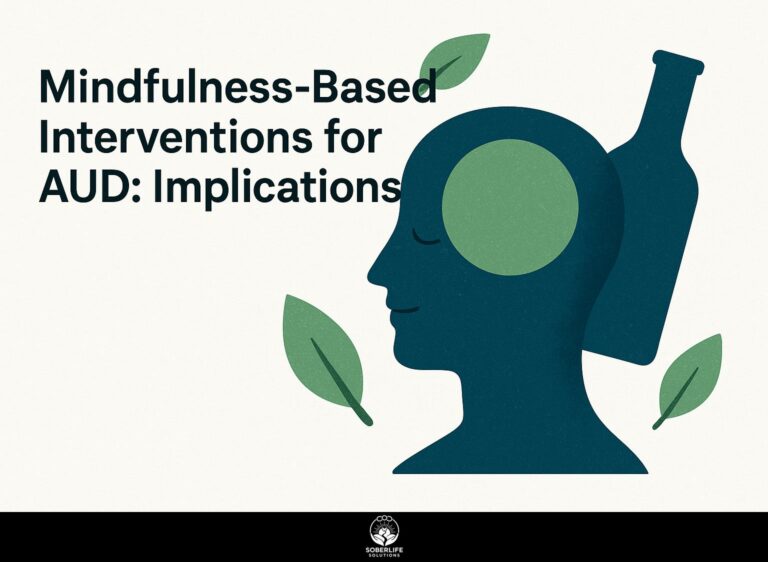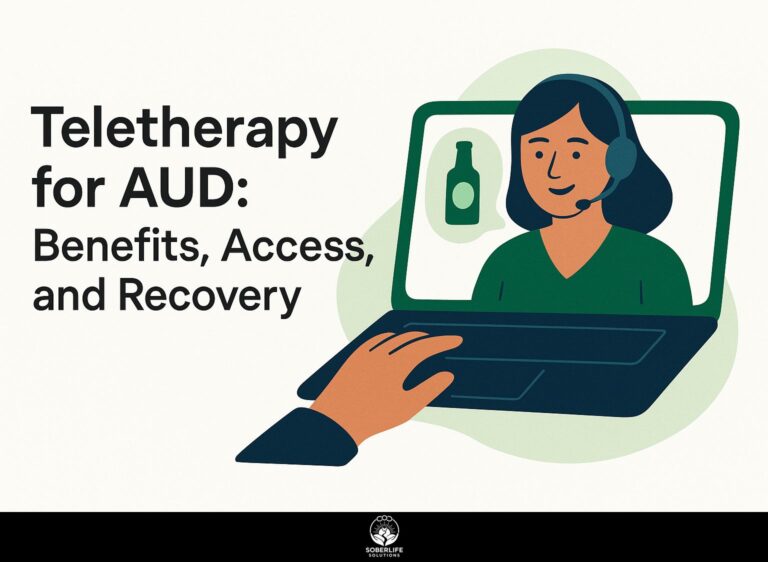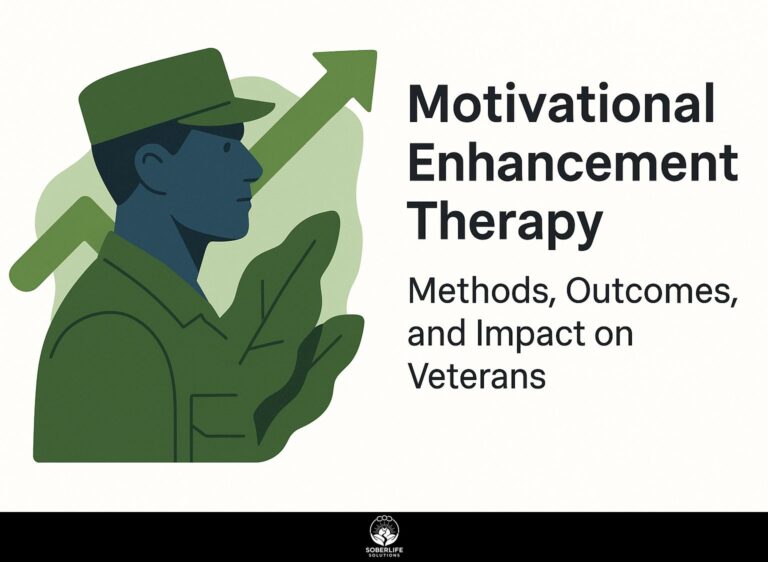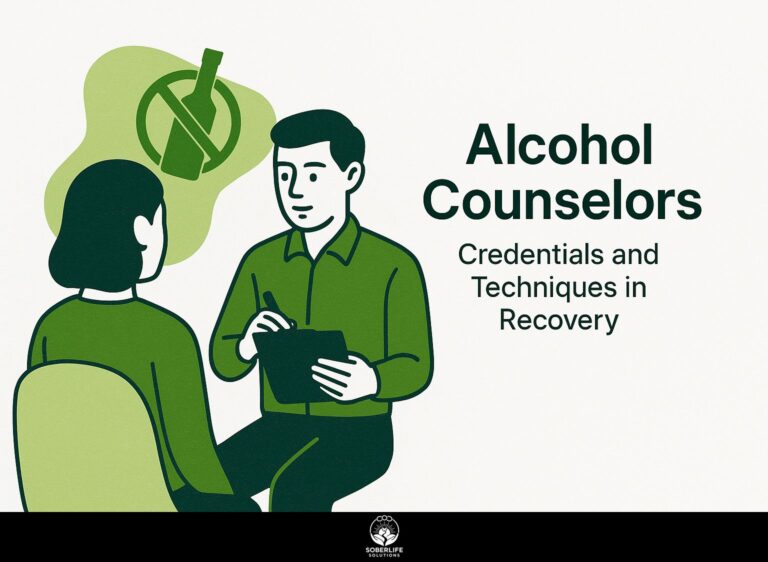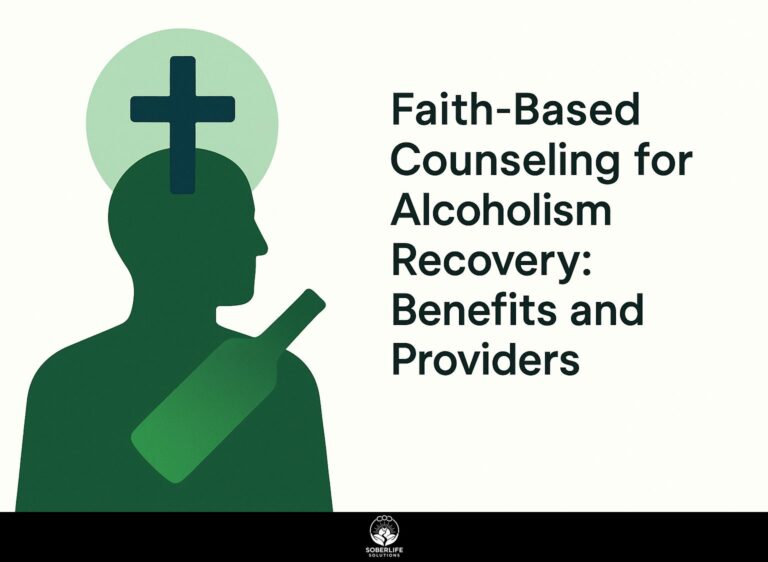Motivational Interviewing for Veterans with AUD
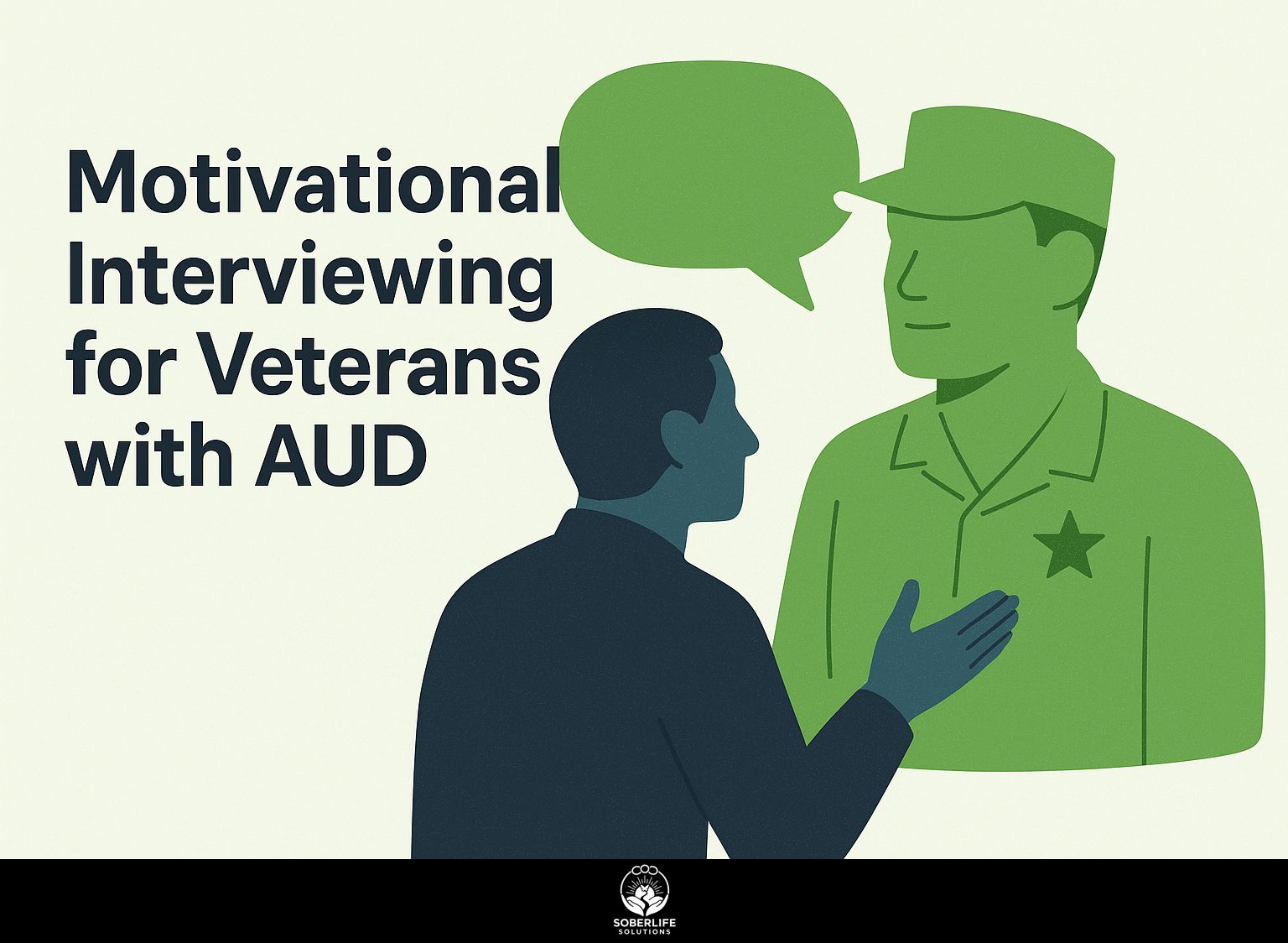
Motivational interviewing provides a caring way to help military personnel dealing with alcohol and substance use disorders. This method, supported by recent controlled trials, aids veterans in effectively handling their recovery. This article looks at motivational interviewing, why it matters for veterans, and how to use it, offering helpful information for both clinicians and caregivers.
Key Takeaways:
Definition and Purpose
As described by Miller and Rollnick, motivational interviewing involves having a joint discussion with clients about what drives them and their actions.
This approach centers on enhancing intrinsic motivation by exploring and resolving ambivalence. Main objectives are creating a helpful setting, encouraging personal reflection, and helping clients express their needs and challenges.
Practitioners often employ techniques such as open-ended questions, affirmations, reflective listening, and summarizing. For example, a therapist might ask, “What changes do you want to make?” This question helps clients share their feelings and thoughts, leading to a more detailed conversation about their goals and the challenges they encounter. Some experts at Verywell Mind suggest that understanding these motivational interviewing techniques can significantly enhance therapeutic outcomes.
Relevance for Veterans
Motivational interviewing helps veterans with substance use problems to pursue treatment.
This method works well for veterans dealing with PTSD, as it supports open conversations and encourages people to think about why they want to change.
Practitioners use techniques such as open-ended questions and reflective listening, helping veterans voice their struggles and aspirations.
Incorporating resources like the Motivational Interviewing Network of Trainers (MINT) can provide veterans’ counselors with essential training and support.
Integrating peer support groups creates a safe space where veterans can share experiences and reinforce their commitment to recovery.
What is Alcohol Use Disorder (AUD)
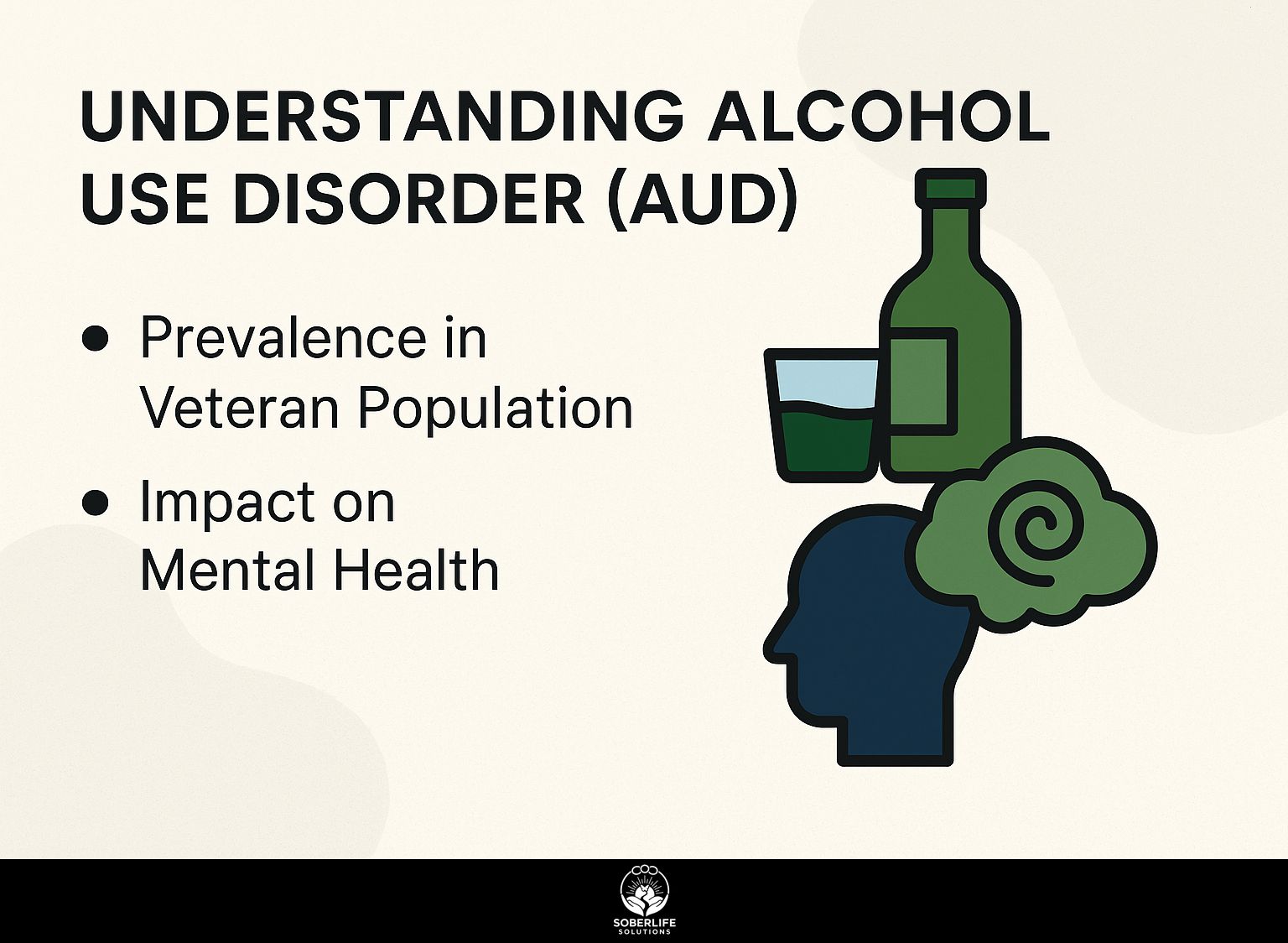
Alcohol use disorder impacts many people, including a large number of veterans. This issue often worsens existing mental health problems in this group. Those curious about the potential solutions might appreciate our guide on reducing stress and anxiety in alcoholism treatment.
Prevalence in Veteran Population
Studies indicate that approximately 20% of veterans struggle with alcohol use disorder, highlighting the critical need for targeted interventions.
To solve this problem, organizations can use well-known methods like Cognitive Behavioral Therapy (CBT) and Motivational Enhancement Therapy (MET).
For example, the VA offers integrated care programs that combine behavioral therapy with medication management to tailor treatment to individual needs. Support groups like Alcoholics Anonymous are important resources.
Data from the Substance Abuse and Mental Health Services Administration (SAMHSA) shows that these programs work well to lower alcohol use among participants, playing a key role in helping veterans recover.
Impact on Mental Health
The intersection of alcohol use disorder and mental health conditions, such as PTSD, significantly complicates treatment strategies for veterans.
Effective care requires an integrated approach that addresses both issues simultaneously. Cognitive behavioral therapy (CBT) designed for veterans can help control PTSD symptoms and deal with alcohol problems.
Programs like the Veterans Affairs’ Health Care System offer specialized group therapy sessions that focus on both PTSD and substance abuse recovery. Tools like the AUDIT questionnaire can help measure how serious alcohol use is. This helps doctors make customized treatment plans that support lasting recovery for veterans. For context, an in-depth analysis by RAND Corporation explores the complex relationship between alcohol use and mental health among U.S. veterans, emphasizing the necessity for comprehensive treatment strategies.
Principles of Motivational Interviewing
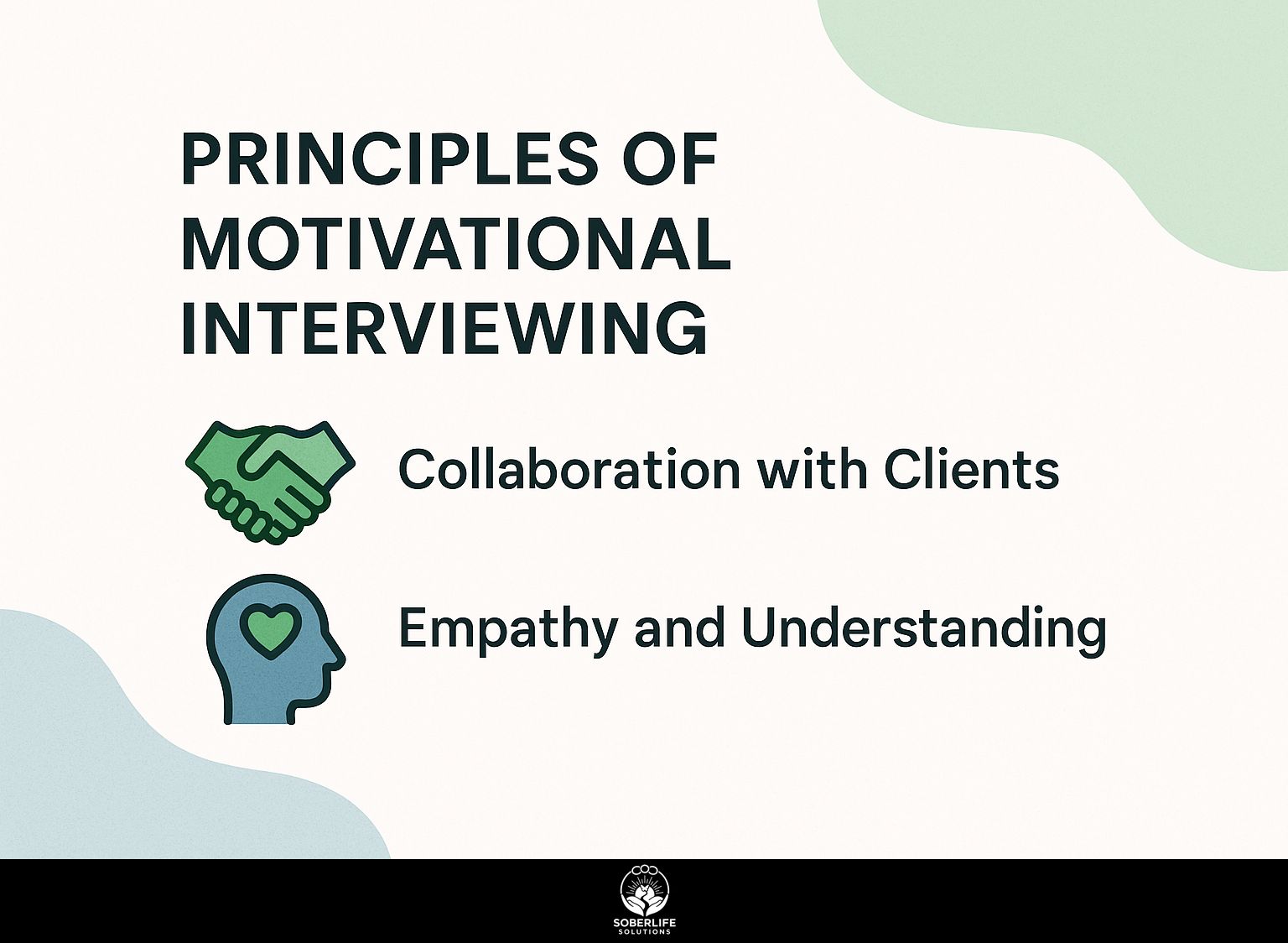
Motivational interviewing is based on four main principles that help make the therapy process more engaging and effective. To better understand how these principles align with various therapeutic approaches, such as Cognitive-Behavioral Therapy, learn more about Cognitive-Behavioral Therapy Techniques for AUD Recovery and their application.
Collaboration with Clients
Collaborating creates a helpful relationship, encouraging clients to feel engaged and secure during their recovery.
Motivational interviewing uses different helpful methods to increase client involvement and responsibility.
- Start by using open-ended questions, which invite clients to share their thoughts and feelings without feeling restricted.
- Reflective listening is an important method; this makes sure clients feel listened to and appreciated.
- Summarizing key points can help clarify discussions, reinforcing the client’s motivations and goals.
Encourage self-efficacy by highlighting the client’s strengths and previous successes. By consistently applying these strategies, clients are more likely to take an active role in their treatment.
Empathy and Understanding
Empathy is important for building trust, letting clients share their worries and goals in a secure setting.
Clinicians can employ specific techniques to demonstrate empathy effectively. Active listening is important; it involves looking the other person in the eye and repeating back what they say, such as, “It seems like you’re feeling stressed about your situation.”
Nonverbal signals like nodding and suitable facial expressions help improve comprehension. Another method is validation, acknowledging the client’s feelings without judgment, which can be as simple as saying, “It’s understandable to feel anxious about change.”
These strategies help build an encouraging environment where clients feel listened to and appreciated, leading to effective conversations.
Techniques for Effective Engagement
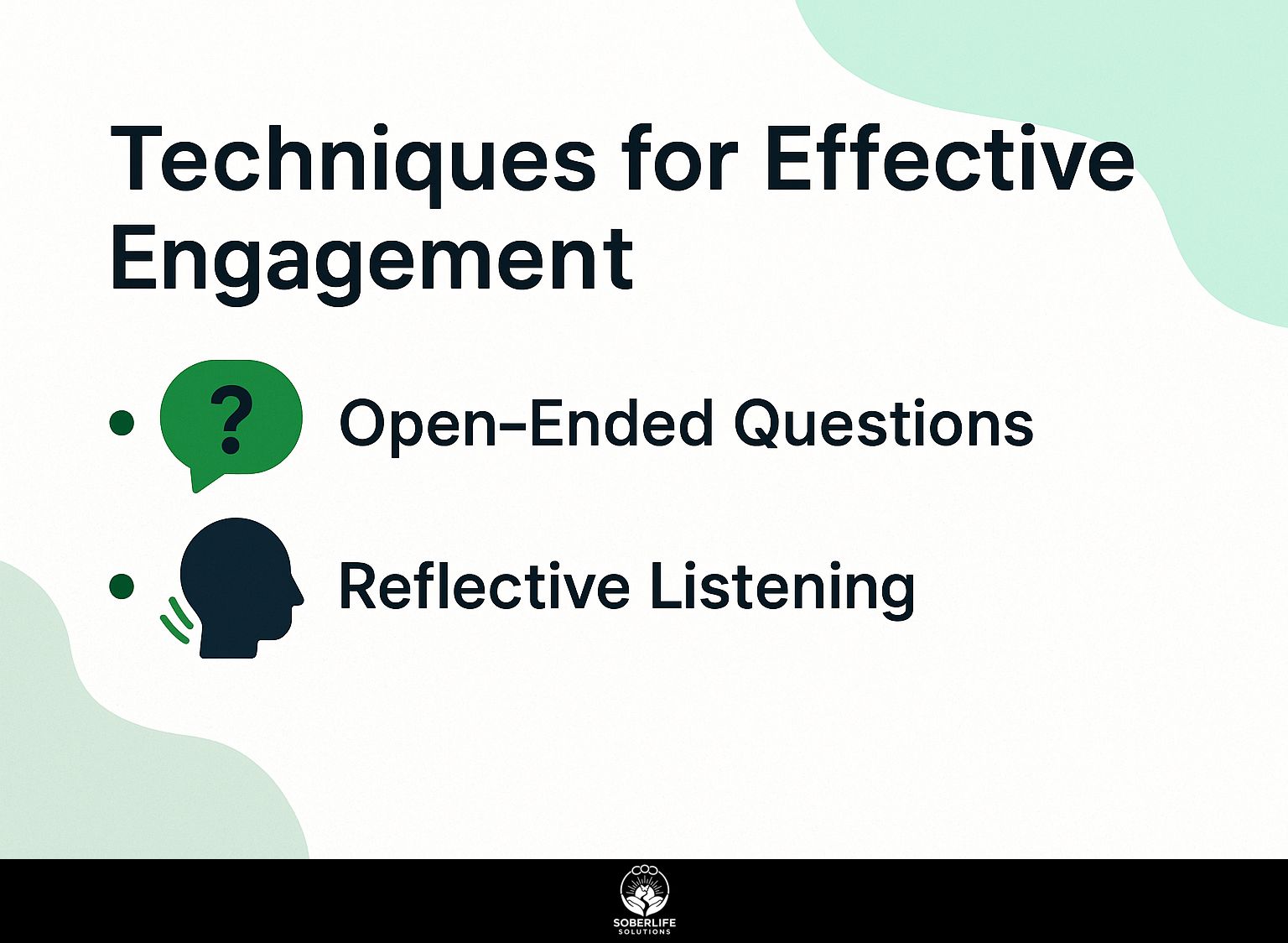
Motivational interviewing uses certain methods that encourage open conversation and better comprehension. To enhance these communication techniques further, consider integrating strategies from various patient engagement models that focus on improving quality of life in recovery.
Open-Ended Questions
Open-ended questions help clients talk about their thoughts and feelings without limiting them to ‘yes’ or ‘no’ answers.
Good open-ended questions include “What have you been thinking about lately?” which gets clients to share their thoughts, or “How did that make you feel?” to discuss emotional responses.
These questions help start conversations and let therapists learn more about clients’ feelings. Tools like the Motivational Interviewing method use these types of questions to encourage interaction.
Therapists can create a supportive environment by asking open-ended questions, helping clients feel comfortable to speak openly and develop personally.
Reflective Listening
Reflective listening allows clinicians to show they grasp what clients say, making clients feel heard and recognized.
To practice reflective listening, start by summarizing what the client has said.
If a client expresses worry about an upcoming event, reply with, “It seems like you’re feeling pretty anxious about the presentation coming up.” This acknowledges their feelings and encourages them to talk more about those emotions.
Ask questions that require more than a yes or no answer, such as “Can you tell me more about what worries you?” This encourages a more complete discussion and shows genuine interest.
By maintaining eye contact and nodding, you further build rapport and create a supportive environment.
Strategies for Implementation
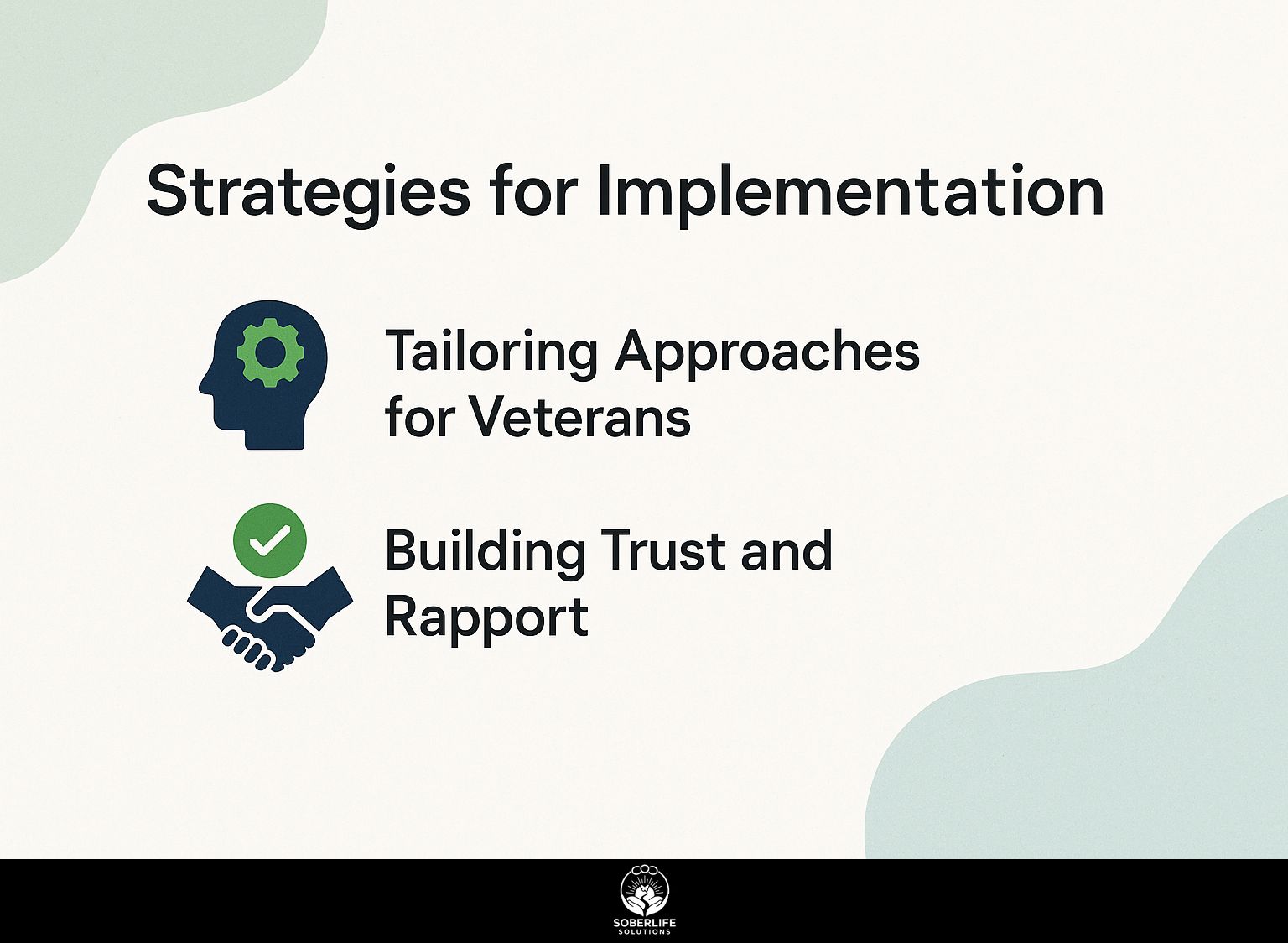
Using motivational interviewing methods means adjusting these techniques specifically for veterans to make sure they work well. One of our most insightful case studies explores how motivational enhancement therapy impacts veterans, offering valuable insights for this tailored approach.
Tailoring Approaches for Veterans
Customizing motivational interview techniques for veterans greatly improves their participation in treatment.
Effective training for practitioners can include integrating veterans’ military culture into discussion. For example, include the idea of honor-a strong value in military service-by examining how their current challenges connect to it.
Using role-play scenarios that reflect veterans’ past experiences can facilitate relatability and trust. Tools such as the Military Culture Competence Resource Guide can help counselors learn more about specific cultural aspects.
Encourage open conversations about how trauma affects service members in specific ways. This helps create a safe space, builds trust, and leads to more meaningful involvement in therapy.
Building Trust and Rapport
Establishing trust is paramount in motivational interviewing, as it lays the foundation for a productive therapeutic alliance.
To build trust effectively, focus on three key techniques: active listening, validating feelings, and maintaining transparency.
Start by demonstrating genuine interest through reflective listening, which shows that you are fully engaged. Next, validate your client’s feelings; for instance, say, ‘It sounds like you’re feeling overwhelmed,’ to acknowledge their experience.
Be clear about what you do and why, creating a safe setting. Regularly communicate with your clients to make sure they feel listened to and valued, strengthening the relationship over time.
Measuring Outcomes and Effectiveness
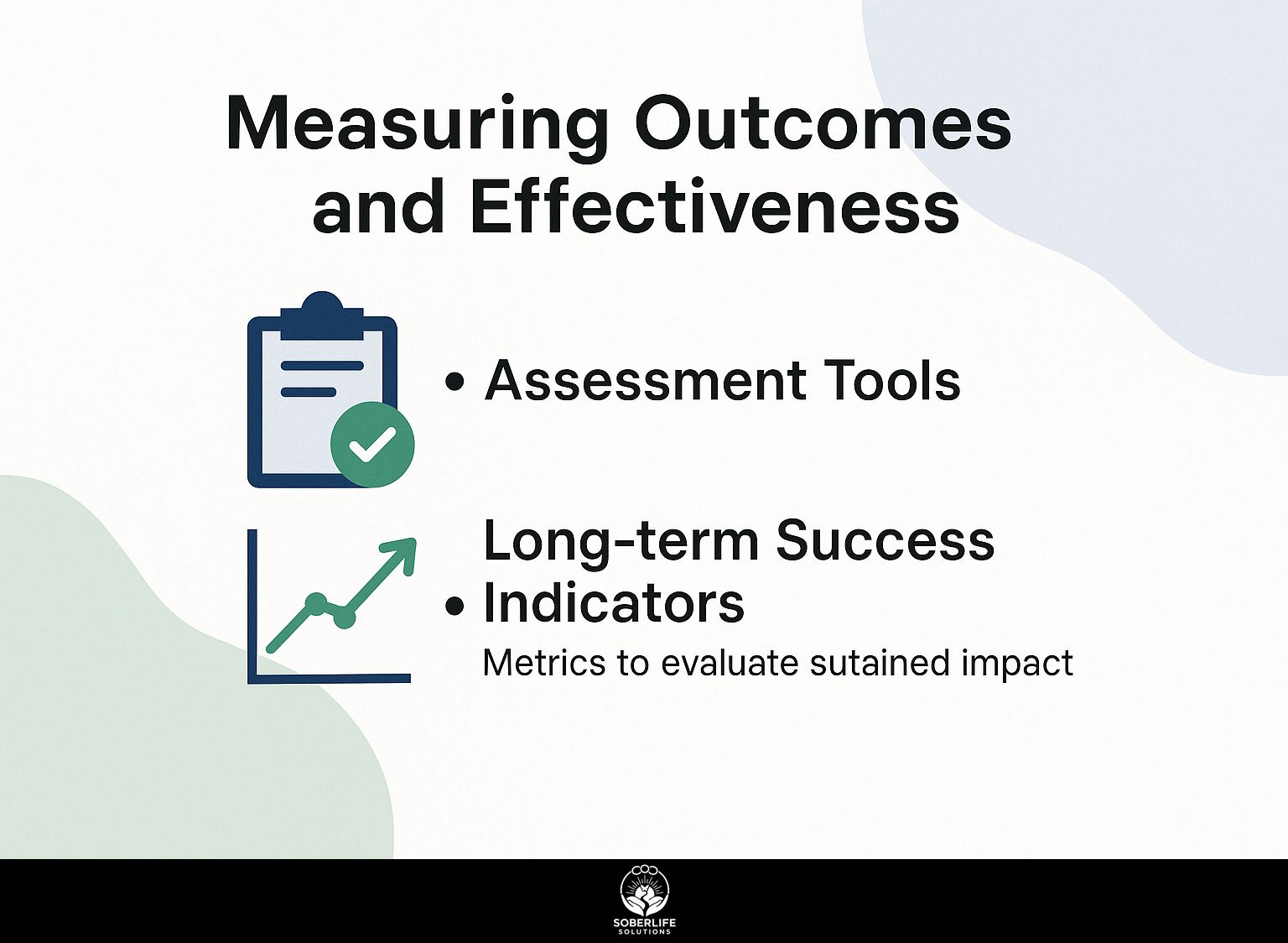
Checking how well motivational interviewing works is important to confirm that it leads to the expected changes in behavior.
Assessment Tools
Utilizing standardized assessment tools, such as the Alcohol Use Disorders Identification Test (AUDIT), helps quantify the impact of motivational interviewing.
To effectively measure outcomes, consider incorporating the Drug Abuse Screening Test (DAST) alongside AUDIT, which focuses on substance use behaviors across a range of drugs.
The Readiness to Change Questionnaire (RTCQ) assesses an individual’s willingness to engage in change. Using these tools together gives a complete evaluation; for example, research indicates that using AUDIT and DAST together can improve the success of early intervention by more than 30%.
Regularly reviewing these evaluations helps create better treatment plans and provides specific support for clients.
Long-term Success Indicators
Long-term indicators of success in motivational interviewing include sustained reduction in alcohol consumption and improved mental health metrics.
To effectively track these metrics, consider using tools like the Alcohol Use Disorders Identification Test (AUDIT) for measuring alcohol consumption levels periodically.
Standardized measures such as the Patient Health Questionnaire (PHQ-9) can help assess mental health improvements over time.
Tracking progress through regular follow-up sessions allows practitioners to adjust their strategies accordingly, ensuring that clients stay engaged and motivated.
Keeping detailed records of these evaluations shows progress and confirms the success of motivational interviewing methods.
Challenges and Considerations
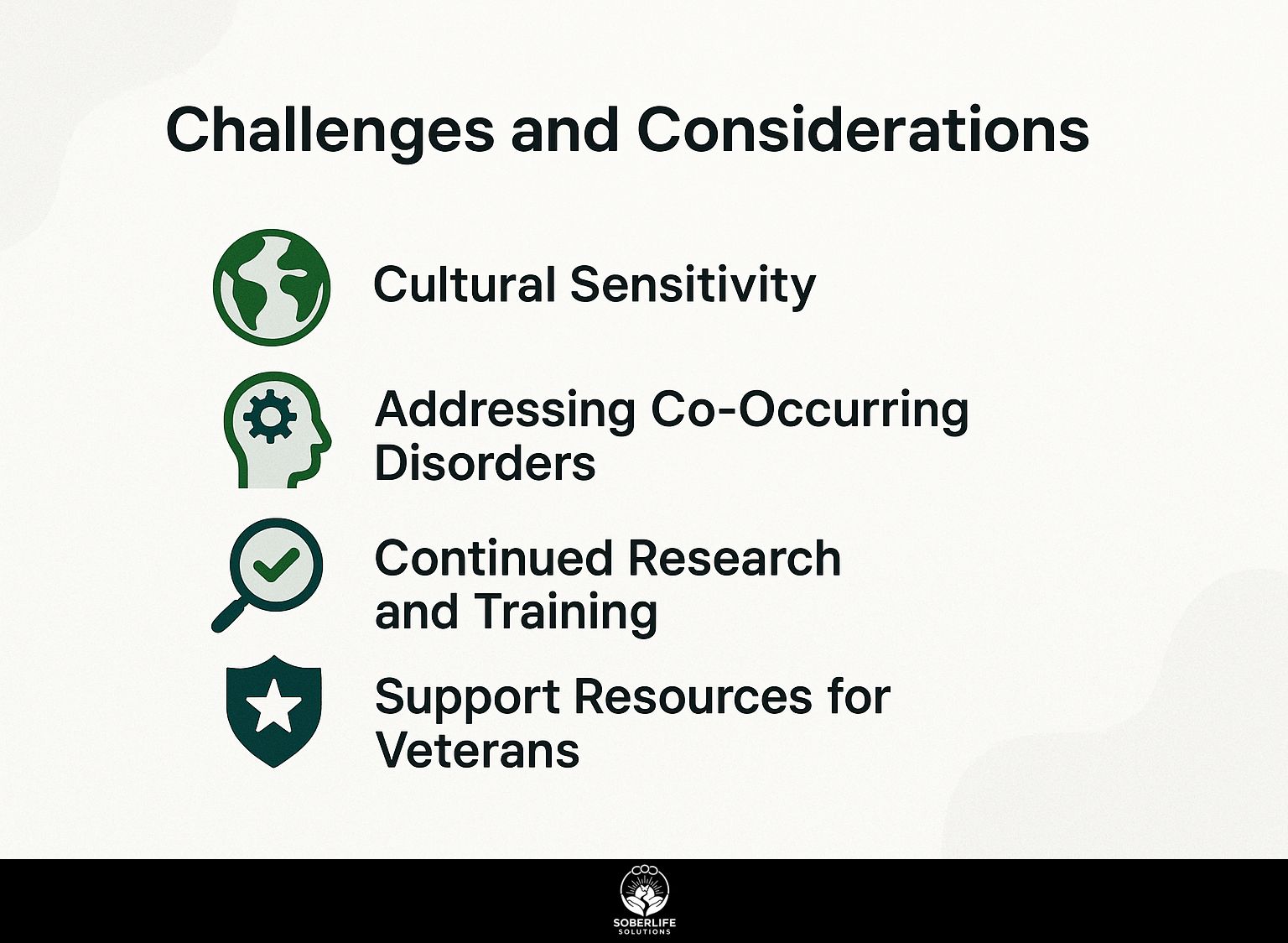
Motivational interviewing is a strong therapy method, but therapists need to recognize the obstacles that might affect how well it works. As mentioned, understanding the comprehensive impact of various therapies for recovery is crucial to effectively implementing motivational interviewing.
Cultural Sensitivity
Being aware of cultural differences is important for connecting well with veterans, helping them feel acknowledged and respected during their treatment process.
To implement cultural sensitivity in motivational interviewing, it’s essential to take actionable steps.
- Start by carefully hearing the personal stories of veterans, which builds trust and respect.
- Include cultural knowledge sessions regularly for your team using tools like the Cultural Competence Education Tool.
- Ask open-ended questions that encourage veterans to express their unique backgrounds and values.
- Practicing reflective listening can help confirm that their views are acknowledged.
By using these strategies in your practice, you improve the therapeutic relationship and results.
Addressing Co-Occurring Disorders
Using motivational interviewing for co-occurring disorders is essential for a complete treatment and recovery plan.
Combining motivational interviewing with other therapy methods can improve results. For example, Cognitive Behavioral Therapy (CBT) can work alongside motivational techniques to address harmful thinking patterns and encourage change.
Utilizing skills-based training, such as Dialectical Behavior Therapy (DBT), helps individuals develop coping mechanisms. Practitioners might also think about using mindfulness techniques to improve self-awareness.
By adjusting these methods to fit each client’s needs, professionals can design a more complete and effective treatment plan, which improves participation and continued therapy attendance.
Continued Research and Training
Continued research is paramount for enhancing the efficacy of motivational interviewing, ensuring that techniques evolve to meet the needs of clients.
Clinicians should look for training programs and join professional groups that specialize in motivational interviewing.
Regularly attending workshops, such as those offered by the Motivational Interviewing Network of Trainers (MINT), can provide updated strategies and techniques.
Utilizing resources like peer-reviewed journals, online courses, and webinars helps practitioners stay informed about the latest research and best practices.
Applying this knowledge in daily tasks enhances outcomes for clients and supports continuous learning in healthcare settings.
Support Resources for Veterans
Giving veterans access to support services, like the Veterans Crisis Line, is important for helping them recover.
Motivational interviewing works well with various important support tools that aid veterans in their healing.
The Veterans Affairs (VA) offers Peer Support Services, where veterans connect with trained peers for shared experiences. Local Vet Centers offer counseling and job resources specifically for veterans.
The Substance Abuse and Mental Health Services Administration (SAMHSA) has a private helpline for substance abuse issues, supporting overall health.
Including these resources in recovery plans helps veterans create supportive communities, build strength, and make reintegration challenges easier to handle.
Frequently Asked Questions
What is motivational interviewing and how does it benefit veterans with AUD?
Motivational interviewing is a counseling approach that helps individuals resolve ambivalence about behavior change. It has been shown to be effective in helping veterans with AUD by increasing their motivation to change and reducing their alcohol consumption.
How is motivational interviewing different from traditional counseling?
In traditional counseling, the counselor usually gives advice and guidance directly, whereas motivational interviewing is a cooperative approach that helps individuals make their own choices and decisions.
Can motivational interviewing be used in conjunction with other treatments for AUD?
Yes, motivational interviewing can be used alongside other treatments for AUD, such as medication or support groups. It can also be used as a standalone treatment, depending on the individual’s needs and preferences.
Is motivational interviewing effective for all veterans with AUD?
Motivational interviewing works well for many veterans with alcohol use disorder, but it might not be right for everyone. It is important to discuss with a healthcare professional to determine if it is the right approach for an individual’s specific needs.
How can a veteran with AUD find a counselor who is trained in motivational interviewing?
Veterans can ask their primary care provider or mental health professional for a referral to a counselor who is trained in motivational interviewing. Many Veterans Affairs (VA) facilities also offer motivational interviewing as a treatment option.
Are there any resources or tools available for veterans to practice motivational interviewing on their own?
Yes, there are online resources and workbooks available for veterans to practice and learn more about motivational interviewing on their own. The VA also offers online courses and webinars on motivational interviewing for veterans and their families.


